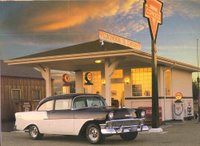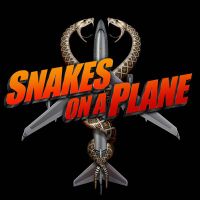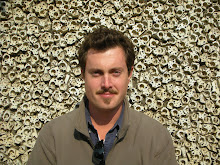 [I'm four-fifths graduated now from Uni (mad props to my people from Across-The-Pond. For my peeps on this side, it's pronounced "YOO-nee" and it means "college." Also: my mathematical assertion in that first sentence is flawed, yet still relevant.). Anyway, I'm high on life at the moment and what follows is an abridged and embellished version of my final thoughts from a term paper on existentialist thought and literature. Oh: "football" will always be "soccer" to me, since our American version of the former incorporates the quintessentially American stories of Ed "Too Tall" Jones and Michael "Too Coked, Sometimes Even For Crack Whores" Irvin. Peace and love to you and yours, wherever you might rest your heads. Enjoy. -NG]
[I'm four-fifths graduated now from Uni (mad props to my people from Across-The-Pond. For my peeps on this side, it's pronounced "YOO-nee" and it means "college." Also: my mathematical assertion in that first sentence is flawed, yet still relevant.). Anyway, I'm high on life at the moment and what follows is an abridged and embellished version of my final thoughts from a term paper on existentialist thought and literature. Oh: "football" will always be "soccer" to me, since our American version of the former incorporates the quintessentially American stories of Ed "Too Tall" Jones and Michael "Too Coked, Sometimes Even For Crack Whores" Irvin. Peace and love to you and yours, wherever you might rest your heads. Enjoy. -NG] Any conception of mankind's awareness of death in existential philosophy is something like the memento mori [Latin: "Remember you are mortal."] in the realm of art. It became a tradition near the middle of the last millennium to include in portraiture a reminder of the subject's mortality--a less-than-subtle irony given the fact that a portrait is meant to bestow upon its subject a kind of immortality, at least as much as can be embedded in an image fixed upon a canvas. While the portraitee is situated in a time and place inextricably linked to their experience of life (even if idealized), the fact remains that the painting remains, while the subject does not. The "memento" in these works could be anything from a tiny skull on a mantelpiece, to an hourglass similarly placed, to a full-length, dancing representation of Death with his scythe. We can see it today in works ranging from painting to sculpture to literature, and even in song. The message of "Memento mori" forms the basis of festivals such as Carnevale and Mexico's Day of the Dead, Christian celebrations of life in the face of our own collective mortality. New Orleans, home of Carnival in the United States,* is also the home of a sanctified tradition known as the "jazz funeral." Led by a full-deco brass band (and sometimes two or three), the members of a funeral party wend their way through the streets, dancing and singing, waving their handkerchiefs and pumping their parasols in the air in a defiant final party for the deceased.** Man's*** knowledge of death is the genesis, the cornerstone of every great work of art, in whichever medium one might choose. Beethoven's "Ode to Joy" would be simply a minor section of a major work, were it not for the fact that its triumph, its "Joy," lies in Ludwig Van's momentary willingness to ignore our human mortality. Nobody would waste hours in front of Da Vinci's "Mona Lisa," jockeying for position with the hordes of photographic coup-counters, were it not for the fact that her enigmatic smile represents a stay of the inevitable (i.e. death) for both the subject and the observer. And what could explain our continuing fascination with Romeo and Juliet, without their acute recognition of life's temporal insanity and death's omnipresent finality?
And yet these mainstays of the Western tradition are nothing more than what Pascal would term "diversions," though they hold at their core an acute awareness of Man's mortality. Far from being modes of escapism, they express our collective knowledge (albeit anecdotal) of death. Life, however, remains at the fore as we find our expressions in song and dance, in inebriation and excess, in the general enjoyment of our temporary, earthly bodies. What more can we assume to be true? Yes, they are diversions, but in these diversions we find the most relevant, prescient experience of what it means to be alive, to exist. There remains a simultaneous recognition of death and life, an expression of Kierkegaard's "passion" that finds itself not bemoaning the nature of existence but rather embracing it for (and in spite of) its temporality. After all is said and done, the worst, most grievous diversion of all is the belief that any true understanding of life, death and existence can come from theoretical pursuits. These exercises in frivolity and notion can provide us with starting points for debate, with nomenclature and terminology and methods by which we can attempt to put our hands on such elusive, mercurial concepts--but in the end, each of us is given the task of making his own life. The "how" of existence is not something to be figured out as one would a mathematical problem.
 In "The Myth of Sisyphus" Albert Camus writes, "There is no fate that cannot be surmounted by scorn." He likens our existential dilemma to the figure from Greek mythology, condemned to an eternity rolling a boulder up a hill only to have it roll back down each time he reaches the top. But Sisyphus understood the absurdity of his fate, and therein, according to Camus, lies his triumph. So, too, must human beings embrace the absurdity of our fate as mortals. What Camus called "scorn," the rest of us can regard as mere acceptance. Regardless of the diversions we seek--be they "dancing, playing the lute, singing, making verses, running at the ring" (from Pascal's "Pensées")--Death waits in the wings as "a possibility in every moment" (per Heidegger). This much is the only given of our existences. Understanding such a momentous truth is our task, one undertaken with all of Kierkegaard's "fear and trembling," but the end result must be one of joy, of passion for each successive, fleeting moment. Our response to "Memento mori" must be "Carpe diem!" To react otherwise would be to cheapen the value of any fear, any trembling, any angst, negating all the good that could come from any of the above. Existence precedes any understanding of it, to paraphrase the Dane. Life, in the end, is in the living of it--and that living is brief. Memento Mori, bitches, and Carpe Diem. Seize the fucking day.
In "The Myth of Sisyphus" Albert Camus writes, "There is no fate that cannot be surmounted by scorn." He likens our existential dilemma to the figure from Greek mythology, condemned to an eternity rolling a boulder up a hill only to have it roll back down each time he reaches the top. But Sisyphus understood the absurdity of his fate, and therein, according to Camus, lies his triumph. So, too, must human beings embrace the absurdity of our fate as mortals. What Camus called "scorn," the rest of us can regard as mere acceptance. Regardless of the diversions we seek--be they "dancing, playing the lute, singing, making verses, running at the ring" (from Pascal's "Pensées")--Death waits in the wings as "a possibility in every moment" (per Heidegger). This much is the only given of our existences. Understanding such a momentous truth is our task, one undertaken with all of Kierkegaard's "fear and trembling," but the end result must be one of joy, of passion for each successive, fleeting moment. Our response to "Memento mori" must be "Carpe diem!" To react otherwise would be to cheapen the value of any fear, any trembling, any angst, negating all the good that could come from any of the above. Existence precedes any understanding of it, to paraphrase the Dane. Life, in the end, is in the living of it--and that living is brief. Memento Mori, bitches, and Carpe Diem. Seize the fucking day.*: Even if Mobile, Alabama claims the first celebration of Mardi Gras in the western hemisphere.
**: The "funeral" part of the term is a misnomer generally agreed upon, as the parades are nothing if not a celebration of life.
***: Please pardon my lack of political correctness. I use "Man" in lieu of "humanity" or another similarly loaded noun purely out of a desire for succinctness. I do not wish to alienate the fifty-one percent of the globe who respond to neither "Man," nor "He."


















